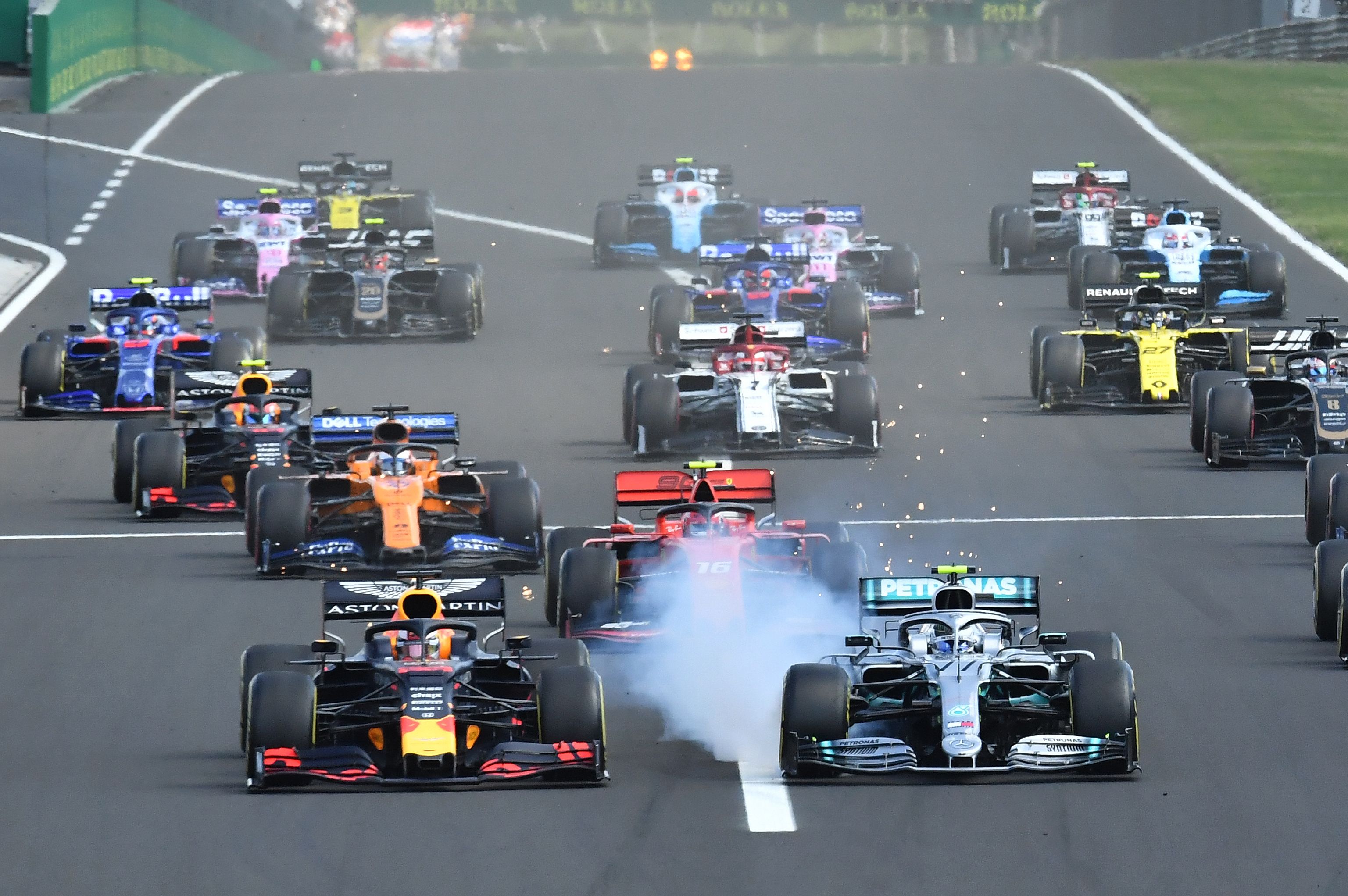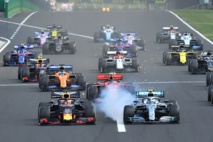Berlin (dpa) - Formula One starts its season on the weekend in Austria after a delay of almost four months owing to the coronavirus.
And because of the pandemic the sport will look very different than usual because strict health regulations are required to be observed.
CORONA TESTS: The whole Formula One personnel has been tested before their arrival in Spielberg. Only those with negative tests not older than four days are allowed in. Tests are repeated every five days. Up to 12,000 tests are to be carried out during the Austrian double header with the July 5 and 12 races. In all some 3,000 people will be admitted to the Red Bull Ring. An isolation ward has been set up for positive cases.
MASKS: Face masks are mandatory in the paddock and social distancing rules must also be adhered to, a big challenge especially for the teams' mechanics. They have started getting used to the masks during tests and simulations. "It will be especially challenging when our mechanics have physical work and it becomes very hot," Ferrari sports director Laurent Mekies said. Some tasks also require face shields and protective clothing.
SMALLER TEAMS: Teams are not allowed to bring more than 8ß0 personnel - including drivers - to the track. That marks a big reduction especially for the top teams Mercedes and Ferrari. But that doesn't affect engineers and mechanics who will be present at almost full strength. Others will help via computer from the teams' factories in areas such as data analysis.
HYGIENE: Washing your hands and other cleaning methods are part of the general hygiene concept, but also regular disinfection of the work place and equipment. Contacts are limited, teams are to stay among themselves in so-called team bubbles. Ferrari have split this even more up in order to avoid having to send everyone home in case of a positive test.
PADDOCK: Normally bustling with activity and with VIPs as visitors, the paddock will look very different. There are no special motor homes, no VIP areas, and the stands are of course also closed. There are also no team areas, tents at the most, with local infrastructure used for distribution of food.
VICTORY CEREMONIES: The champagne party on the rostrum is replaced by a basic ceremony on the home straight. Trophies can also not be handed over because of social distancing rules. F1 sports director Ross Brawn has said that some ideas are being floated and tested how they work on TV. The pre-race driver parade in an open top bus is also scrapped.
RACE WEEKEND: The racing programme itself sees no change, with two free practice sessions on Friday, final practice and qualifying Saturday and the race Sunday. But there are no autograph and media sessions.The number of media allowed to the track is also reduced to the bare minimum. The general rule is: anyone who doesn't really have to be there should stay at home.
ACCOMODATION: In order to avoid contact to the outside world teams are arriving on charter flights in Zeltweg which is close to the track. F1 personnel is to move only between airport, track and hotels. Teams stay in different hotels and among themselves, with contacts to other people to be avoided. "We are organising getting our food in the hotel and at the track so that we don't have to go out," Mekies said.
And because of the pandemic the sport will look very different than usual because strict health regulations are required to be observed.
CORONA TESTS: The whole Formula One personnel has been tested before their arrival in Spielberg. Only those with negative tests not older than four days are allowed in. Tests are repeated every five days. Up to 12,000 tests are to be carried out during the Austrian double header with the July 5 and 12 races. In all some 3,000 people will be admitted to the Red Bull Ring. An isolation ward has been set up for positive cases.
MASKS: Face masks are mandatory in the paddock and social distancing rules must also be adhered to, a big challenge especially for the teams' mechanics. They have started getting used to the masks during tests and simulations. "It will be especially challenging when our mechanics have physical work and it becomes very hot," Ferrari sports director Laurent Mekies said. Some tasks also require face shields and protective clothing.
SMALLER TEAMS: Teams are not allowed to bring more than 8ß0 personnel - including drivers - to the track. That marks a big reduction especially for the top teams Mercedes and Ferrari. But that doesn't affect engineers and mechanics who will be present at almost full strength. Others will help via computer from the teams' factories in areas such as data analysis.
HYGIENE: Washing your hands and other cleaning methods are part of the general hygiene concept, but also regular disinfection of the work place and equipment. Contacts are limited, teams are to stay among themselves in so-called team bubbles. Ferrari have split this even more up in order to avoid having to send everyone home in case of a positive test.
PADDOCK: Normally bustling with activity and with VIPs as visitors, the paddock will look very different. There are no special motor homes, no VIP areas, and the stands are of course also closed. There are also no team areas, tents at the most, with local infrastructure used for distribution of food.
VICTORY CEREMONIES: The champagne party on the rostrum is replaced by a basic ceremony on the home straight. Trophies can also not be handed over because of social distancing rules. F1 sports director Ross Brawn has said that some ideas are being floated and tested how they work on TV. The pre-race driver parade in an open top bus is also scrapped.
RACE WEEKEND: The racing programme itself sees no change, with two free practice sessions on Friday, final practice and qualifying Saturday and the race Sunday. But there are no autograph and media sessions.The number of media allowed to the track is also reduced to the bare minimum. The general rule is: anyone who doesn't really have to be there should stay at home.
ACCOMODATION: In order to avoid contact to the outside world teams are arriving on charter flights in Zeltweg which is close to the track. F1 personnel is to move only between airport, track and hotels. Teams stay in different hotels and among themselves, with contacts to other people to be avoided. "We are organising getting our food in the hotel and at the track so that we don't have to go out," Mekies said.









 Home
Home Politics
Politics











